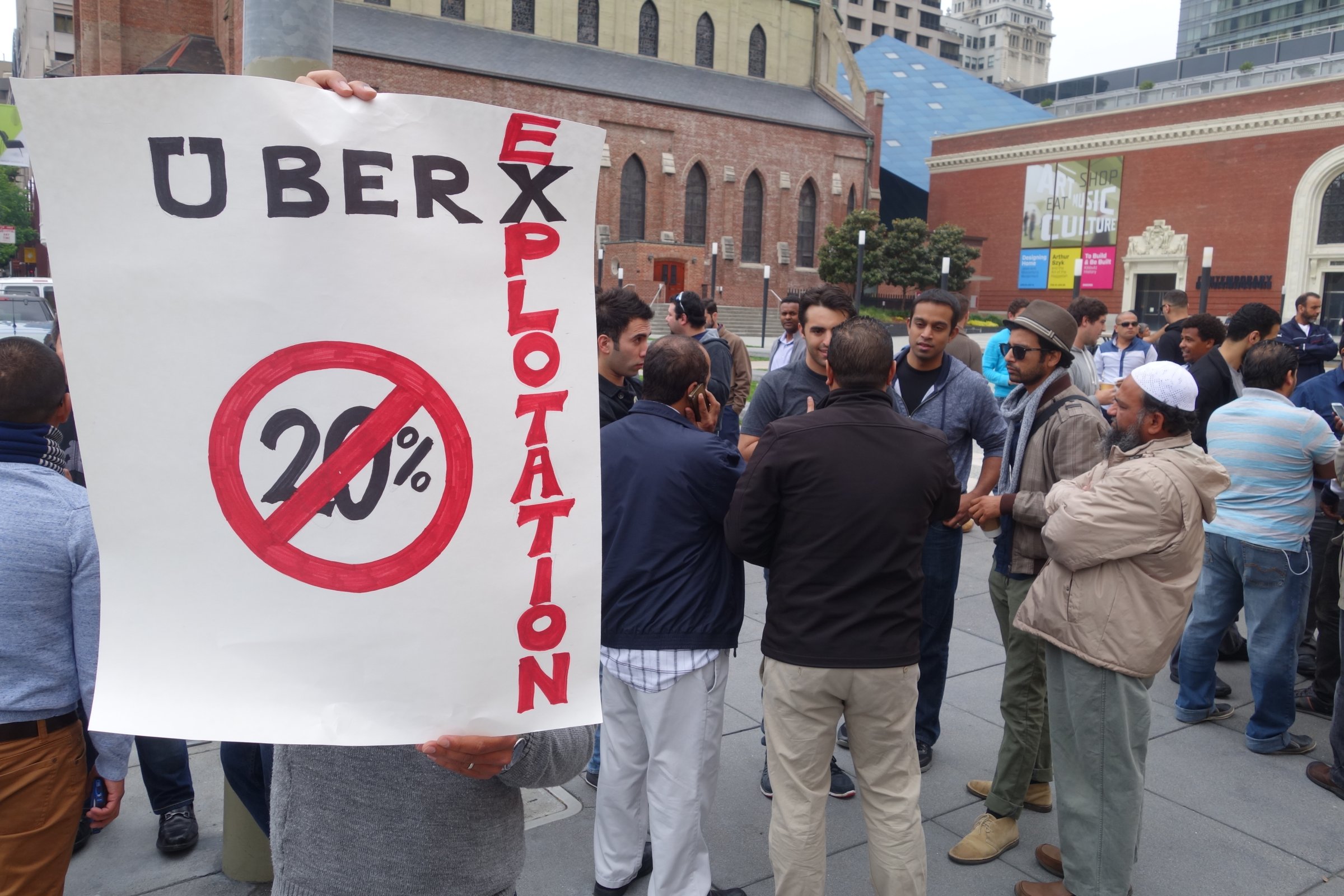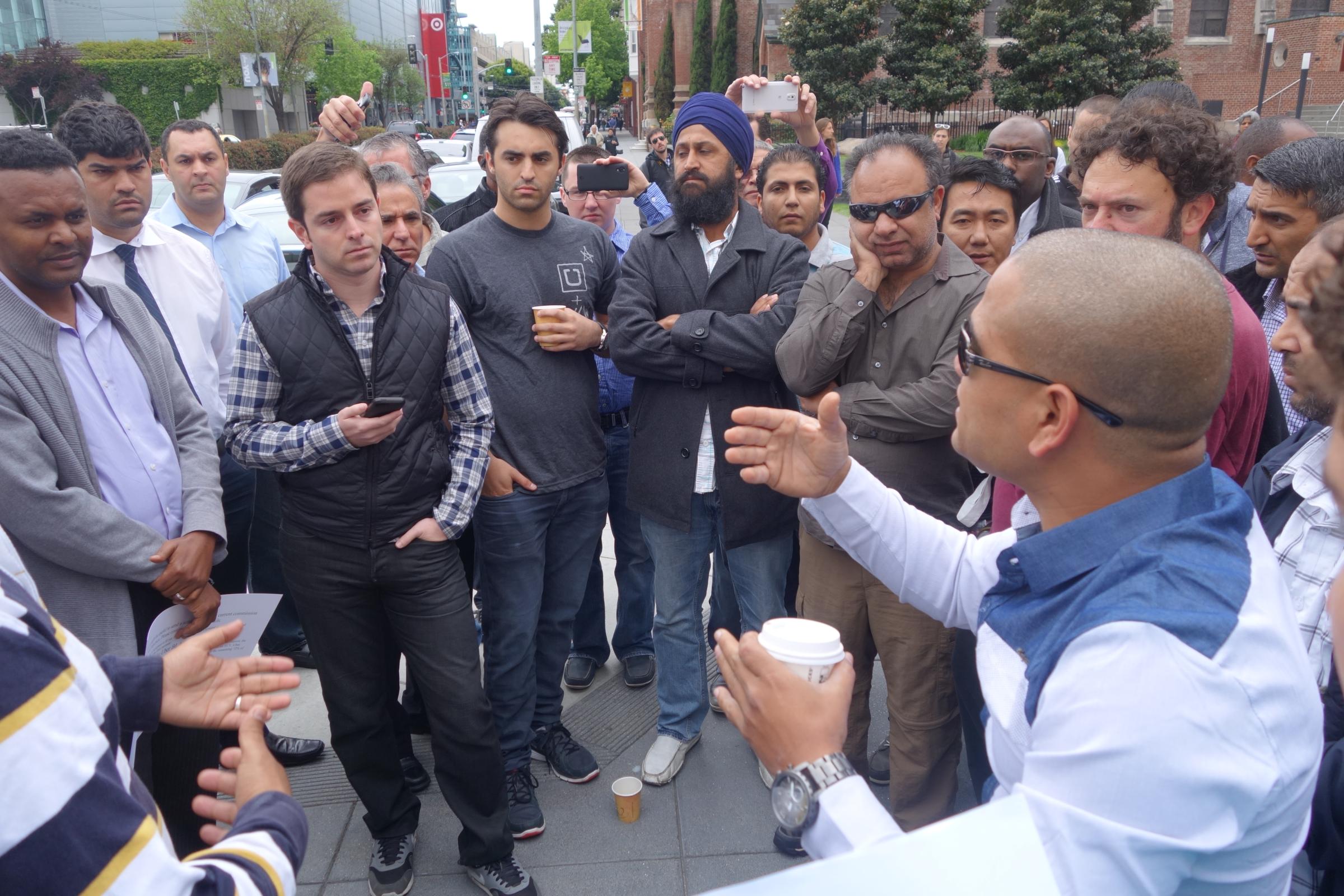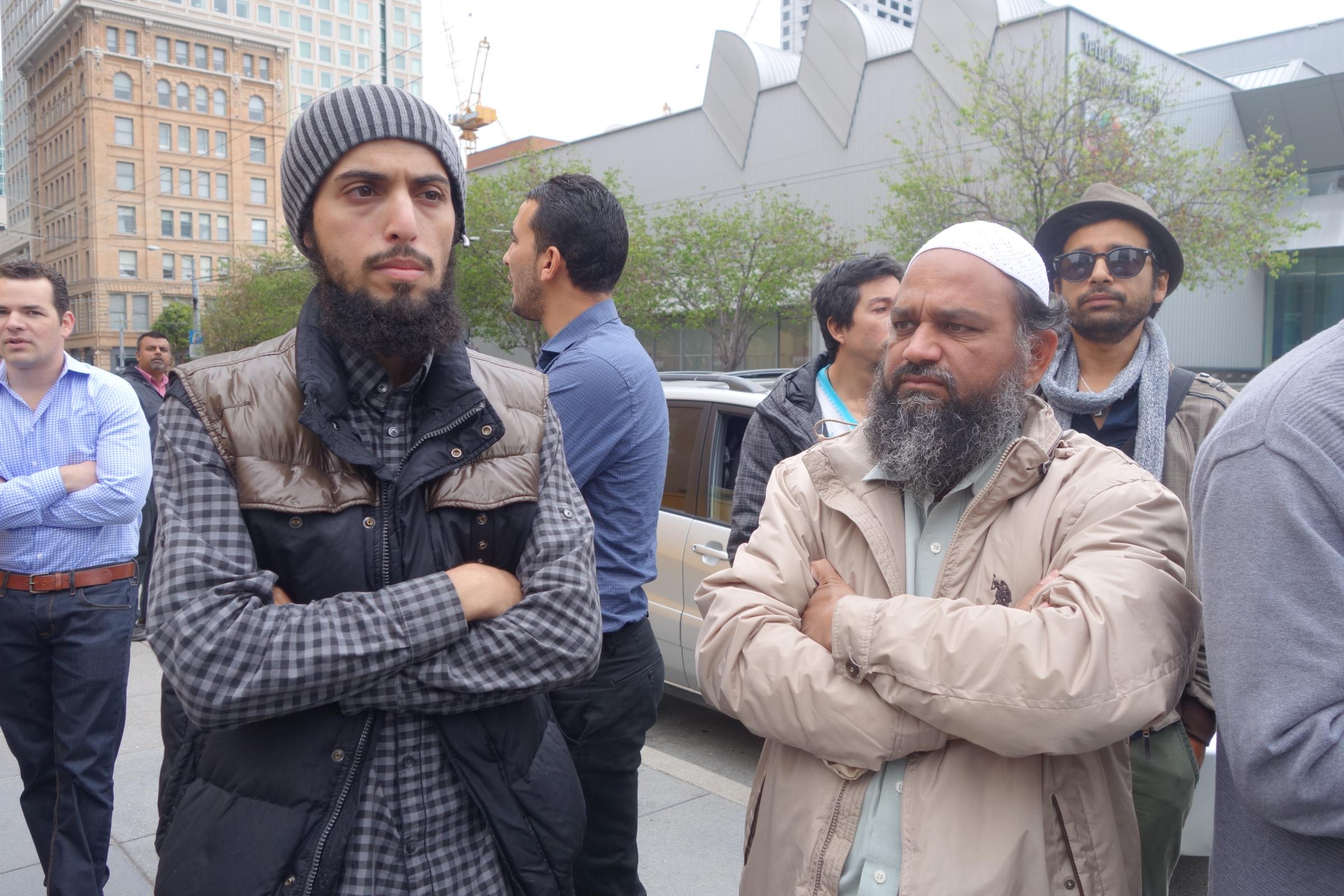
Nearly 100 disgruntled UberX drivers gathered outside Uber’s headquarters in San Francisco on Thursday to demand better pay and treatment from one of the sharing economy’s most visible companies.
UberX is a lower price service that the company known for providing black cars on demand offers in a few dozen cities; Uber has touted UberX as, on average, 26% cheaper than a taxi. Uber recently raised the cut it takes from the UberX drivers’ fares back to 20%, after lowering it to 5% in January. Uber says the fluctuation was a seasonal adjustment, meant to make the service more competitive during slow winter months before business picked up in the spring. The drivers didn’t see it that way.
“You guys tricked us and you lied to us and you owe us an apology right now!” said Ramzi Raguii, standing in the middle of a circle formed by other UberX drivers, who clapped in agreement. “We just want to make a living. We don’t want to be gouged!” Drivers also complained that the company was not being responsive to their needs, accusing them of ignoring or delaying responses to their emails and calls and sending “threatening” emails warning they would be kicked off the service if a customer gave them a poor rating on their five-star system.
Many said they wanted to be able to accept tips, something they’re forbidden to do under Uber’s business model, because removing that step from the process of getting a ride is attractive to many consumers. “We work for less than minimum wage!” one driver said. “The fares are so low. It doesn’t make any sense.” In a statement, Uber said that their jobs can be much more lucrative than that: “With ever-increasing demand, greater trips per hour, and new cities launching every day, drivers on Uber make more money than with any other ridesharing platform or taxi company. A fully utilized vehicle on UberX can gross up to $100,000/year.”
As the drivers gathered outside, the company sent employees armed with pastries and coffee out into the fray to deflate the tensions. For a while, it seemed to work; there was an employee who works in Uber’s drivers operations department for nearly every driver, engaging them in one-on-one discussions about their concerns. But as the numbers of drivers grew, the tenor of the protests changed. Raguii asked for quiet among all the protestors and called the San Francisco general manager, Ilya Abyzov, to come have a face-to-face conversation with him in front of everyone. Wearing a puffy vest over his plaid shirt, Abyzov stood surrounded by drivers as they loudly voiced their grievances.

“Our number one demand,” Raguii said, “is take care of your drivers. Quit burning and churning through drivers.” Another protester chimed in: “Without us, you’re nothing!” The conversation was civil, but the situation became tense, with Uber employees quietly weathering a storm of demands and attempting to make their case, saying that the company has costs to cover just like drivers do. Raguii challenged Abyzov to make each one of his employees spend a week as a driver. “They don’t know what it’s like going out on the road,” one driver said. “They just keep making these decisions from behind the desk.”
Though Abyzov stood quietly listening and taking notes while the drivers aired their grievances, he told TIME that “the vast majority of people in the system are very happy with it.” Uber employees also said that they only make money when the drivers do, so it’s in their interest for everyone to be happy.
A common refrain from drivers was that if their voices weren’t heard, they would defect to Lyft, another ride-sharing startup that has quickly spread across the nation. But this entire sector of the sharing economy is still finding its feet. Lawmakers and regulators worry that these companies, who often view themselves as organizing independent contractors rather than employing drivers, are operating in legal gray areas. Taxi cab groups routinely complain they are far more regulated and have to jump through far more hoops to make their living on the road. Issues of insurance, worker’s compensation and liability are much less clear for these startups than they are for companies with more traditional business models.
But that isn’t stopping more players from jumping into the market with arms swinging, spurred on by the explosive growth of companies like Uber. As the protest continued, another company called Summon, which promises “a great driver two taps away at all times,” sent out a tweet: “Summon is cheaper than UberX – No surge & great drivers!” They also offered a promo code for $20 off a customer’s first ride: “UBER.”

More Must-Reads From TIME
- The 100 Most Influential People of 2024
- The Revolution of Yulia Navalnaya
- 6 Compliments That Land Every Time
- What's the Deal With the Bitcoin Halving?
- If You're Dating Right Now , You're Brave: Column
- The AI That Could Heal a Divided Internet
- Fallout Is a Brilliant Model for the Future of Video Game Adaptations
- Want Weekly Recs on What to Watch, Read, and More? Sign Up for Worth Your Time
Contact us at letters@time.com